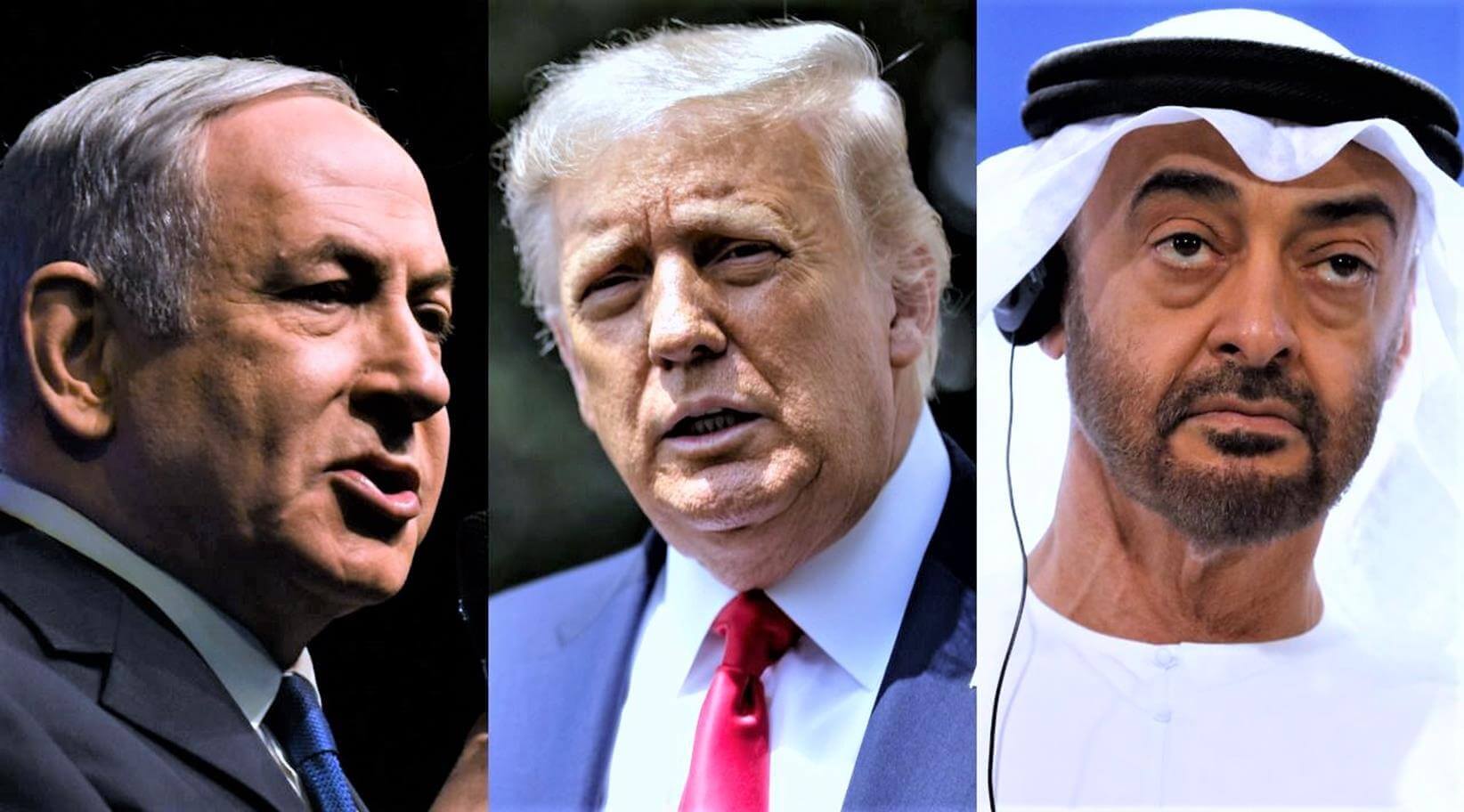In a surprise announcement by United States President Donald Trump on Thursday, it was revealed that the United Arab Emirates and Israel have reached a “historic” peace deal to normalize their diplomatic relations. A key highlight of the plan is that Israel has agreed to suspend its internationally-condemned plans to unilaterally annex parts of occupied West Bank territory.
The official statement released by Trump on Twitter said that representatives from both countries will be meeting over the next few weeks “to sign bilateral agreements regarding investment, tourism, direct flights, security, telecommunications, technology, energy, healthcare, culture, the environment, the establishment of reciprocal embassies, and other areas of mutual benefit”.
Joint Statement of the United States, the State of Israel, and the United Arab Emirates pic.twitter.com/oVyjLxf0jd
— Donald J. Trump (@realDonaldTrump) August 13, 2020
Prior to this, no Arab Gulf country has had official diplomatic relations with Israel. The UAE now joins Jordan and Egypt as the only Arab countries to establish normal ties with the Jewish state. Shared concerns over Iran’s growing nuclear capabilities and its resultant regional security issues have, however, led to several incidents of unofficial contact between the two countries long before this agreement. In May, the UAE chartered its first-ever flight to Israel in coordination with the UN World Food Programme to deliver aid to Palestine, who eventually rejected it on grounds that it violated their international pressure campaign on Tel Aviv and on the grounds that it was not sent through channels approved by the Palestinian Authority.
The move is being widely lauded as a foreign policy win for Trump, who is contesting re-election this November. “Now that the ice has been broken I expect more Arab and Muslim countries will follow the United Arab Emirates,” Trump told reporters, indicating that the White House will soon be hosting a signing ceremony as well. Further, Israeli Prime Minister Benjamin Netanyahu also stands to benefit from the public support for this deal as he remains on trial for charges of corruption in the midst of a failing economy. Both right-wing heads of state have seen a major drop in their public approval ratings due to their inadequate responses to the coronavirus pandemic.
Several analysts believe that more Arab Gulf countries will follow suit in signing pace deals under the condition that the Israeli state nix its plans to usurp control of the West Bank.
However, in a televised address following the announcement, Israeli Prime Minister Benjamin Netanyahu clearly stated that his administration has only delayed the annexation plans, but that they are still a very real possibility as part of the previously agreed-upon US-brokered Middle East Peace Plan. “There is no change in my plan to apply our sovereignty to Judea and Samaria [West Bank] in full co-ordination with the US. I'm committed to it. That hasn't changed. I remind you that I was the one who put the issue of sovereignty over Judea and Samaria on the table. This issue remains on the table,” he said.
The move has met mixed reactions from international actors. A spokesperson for Palestinian President Mahmoud Abbas expressed that the UAE-Israel deal was tantamount to “treason” and that the PA will soon recall its ambassador to the Emirates. The move was also met with anger and dismay from members of the Palestine Liberation Organization.
May you never experience the agony of having your country stolen; may you never feel the pain of living in captivity under occupation; may you never witness the demolition of your home or murder of your loved ones. May you never be sold out by your "friends." https://t.co/CBaNl1QQqx
— Hanan Ashrawi (@DrHananAshrawi) August 13, 2020
So far, the deal has been welcomed and supported by Egypt, the United Kingdom, France, Bahrain, and Jordan. Jordan, an Israeli neighbour, said that the newly patched relations could push forward Arab pressure for peace negotiations. A spokesperson for United Nations Secretary-General Antonio Guterres said that the leader welcomes the agreement and hopes that it will lead to negotiations of a two-state solution for the Palestine issue as per previous UN resolutions.

